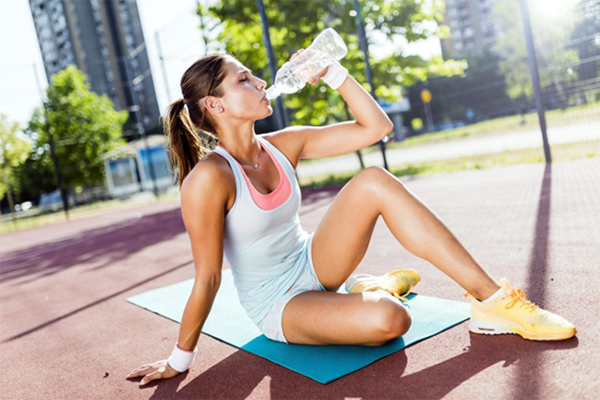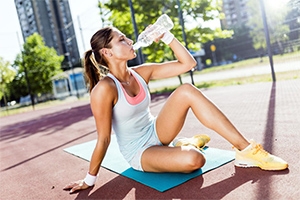
Hot Florida summers can take a toll on your body in more ways than one—and your joints are no exception. As temperatures rise, dehydration becomes more common, especially if you're active outdoors. What many people don’t realize is that water plays a crucial role in maintaining joint health. Let’s explore how dehydration can affect knee lubrication, shock absorption, and overall joint function.
Why Hydration Matters for Healthy Joints
Joints like the knees depend on a specialized fluid called synovial fluid to function properly. This fluid acts as a lubricant and shock absorber between the bones, allowing smooth, pain-free motion. Synovial fluid is made primarily of water, so when you're dehydrated, your body produces less of it—resulting in increased friction and joint discomfort.
Even mild dehydration can lead to stiffer joints, especially during exercise or repetitive movements. For patients with arthritis or recovering from joint replacement, staying well-hydrated can directly impact comfort and healing.
The Role of Water in Shock Absorption
Cartilage, the rubbery tissue that cushions the ends of bones in the knee joint, also relies on water. It contains up to 80% water by weight, helping it act like a sponge that compresses and rebounds with every step. Dehydration reduces this sponge-like effect, increasing the risk of cartilage wear, inflammation, and long-term joint damage. Reduced shock absorption puts more pressure on the bones and can accelerate degenerative joint conditions like osteoarthritis.
Signs Dehydration May Be Affecting Your Joints
If these symptoms improve with increased water intake, hydration could be playing a larger role than you think:
- Morning stiffness or joint "crackling"
- Increased soreness during physical activity
- Joint fatigue or discomfort after long periods of standing or walking
- Slower recovery after exercise
Tips for Keeping Your Knees Hydrated
- Drink water consistently throughout the day, not just when you feel thirsty
- Increase intake during hot weather, physical activity, or illness
- Eat hydrating foods like fruits and vegetables (e.g., cucumbers, oranges, watermelon)
- Limit caffeine and alcohol, which can contribute to dehydration
Hydration is not a cure-all, but it’s an essential part of supporting healthy knees—especially if you’re active or managing joint conditions.
If knee stiffness, swelling, or pain continues despite good hydration and activity habits, it may be time to explore further treatment options.
AUTHOR: Andrew R. Noble MD, is a board-certified orthopedic surgeon specializing in hip and knee replacement at Palm Beach Orthopedic Institute. Fellowship-trained at Harvard Medical School's Brigham and Women’s Hospital, Dr. Noble is recognized as a top doctor in his field. He is a member of the American Academy of Orthopaedic Surgeons (AAOS) and the American Association of Hip and Knee Surgeons (AAHKS), having published in The Journal of Bone and Joint Surgery and presented at prestigious national conferences.




